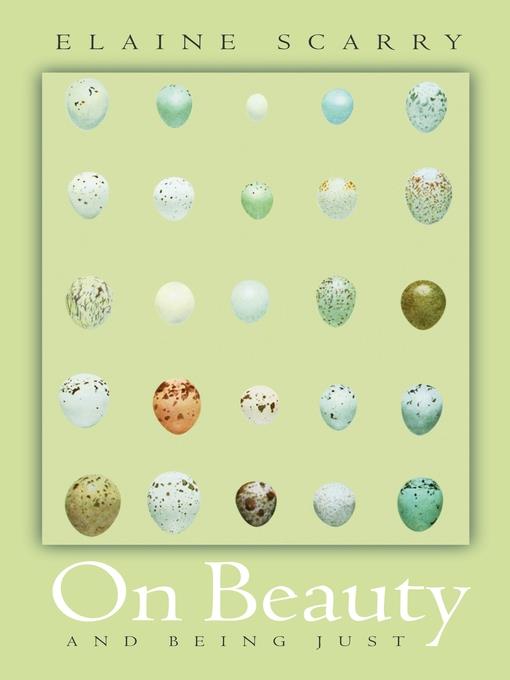
On Beauty and Being Just
کتاب های مرتبط
- اطلاعات
- نقد و بررسی
- دیدگاه کاربران
نقد و بررسی

August 2, 1999
Best known for her 1985 study of torture and physical pain, The Body in Pain, and for her much-publicized contention, first expressed in the New York Review of Books, that electromagnetic interference caused the crash of TWA Flight 800, Harvard English professor Scarry turns her critical lights on the question of how we transform literature into compelling mental imagery. Given that imagination is, by definition, less vivid than actual perception, she asks, why should a poem by Wordsworth, say, or a novel by Charlotte Bront , bring the material world to life so palpably? Although Scarry bases her argument largely on close literary readings, her approach often recalls that of such Enlightenment philosophers as Descartes and Hume as she attempts to solve the riddle of how the mind works. Scarry is an original, interdisciplinary thinker. She writes like someone enraptured by both the natural world--especially flowers--and by language. Unfortunately, Scarry takes for granted that her reader is as obsessive a gardener as she. Is it really universally the case that "people seem to have long languorous conversations describing to each other the flower they most love that morning?" And is this observation a useful basis for a universal theory of the mind? In the long sections of the book devoted to the habits of a certain sparrow in Scarry's garden, or to charting every reference to vegetation in the works of Homer, Flaubert and Wordsworth, Scarry appears lost in her own lush imaginative world. (Oct.). FYI: In September, Princeton Univ. will publish Scarry's On Beauty and Being Just ($15.95 134p ISBN 0-691-04875-4), a pair of lectures intended to rescue the idea of beauty from academic neglect.

September 15, 1999
Scarry (English, Harvard Univ.), the author of the powerful and important The Body in Pain, has long been interested in ideas about creativity, imagination, and justice. In her groundbreaking earlier work, those themes were tied to the human experiences of pain and embodiment in strikingly original ways. In these two new works, she continues her explorations, using her formidable analytic talents to understand the function of the imagination in reading literature and to investigate the relationship between aesthetics and ethics, especially in contemporary academic discourse. In Dreaming by the Book, Scarry wonders how the best writing enables us to produce images and scenes in our minds that carry something of the force of reality. She deftly unfolds an answer by identifying and explicating several general principles and five formal practices by which authors invisibly command us to manipulate the objects of our imagination. While not everyone will be convinced by all of her conclusions, her analyses are always original and illuminating. The book is valuable not only for its insights but also for the pleasure of simply following Scarry through her explorations. Part 1 of the shorter On Beauty and Being Just is similarly engaging. Here, Scarry examines the experience of apprehending or misapprehending beauty in art, literature, or the world around us. But in the second half of the book, which builds to a claim about the relationship between beauty and justice, she casts her argument against an ill-defined set of "opponents of beauty" who are so generalized and obscure as to be straw men. Also, because of the reflective nature of her text (some of which was apparently presented in public lectures), she offers no citations or specific references to the individuals or philosophies she means to critique. The result is tiresome, misleading, and unfortunate, since the ideas she is exploring are important and provocative ones.--Julia Burch, MIT Media Lab, Cambridge, MA
Copyright 1999 Library Journal, LLC Used with permission.

























دیدگاه کاربران